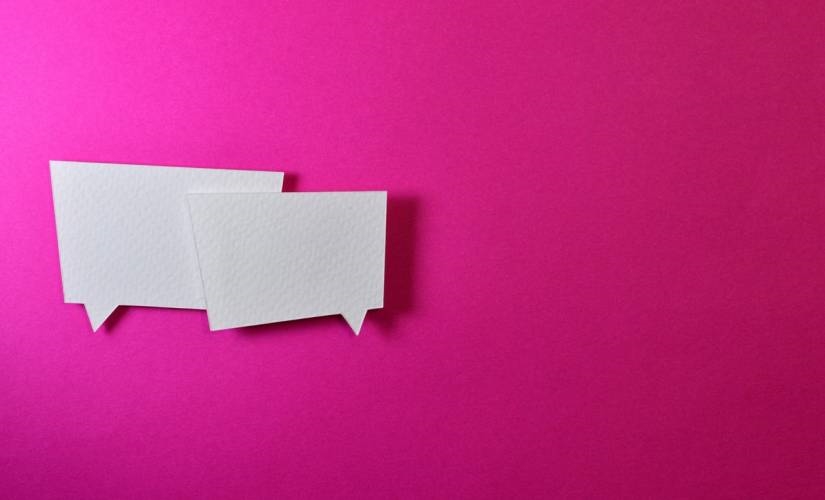When Will Chatbots Become Better Than Humans?
When Will Chatbots Become Better Than Humans?

How often do you have full conversations with chatbots? It might happen more than you think.
These days, millions of businesses are employing chatbots for sales, customer service, and dozens of other functions, giving people the fluidity and directness of conversation without requiring an actual human agent to step in.
Some of the advantages of this move are obvious; if a chatbot can automatically answer basic customer questions, you don’t have to hire a person for the role. You may also see a faster response time, greater consistency, and no fatigue or frustration.
But if your intuitions are in line with the average person’s, you’ll instinctively feel like chatbots aren’t quite at the human level yet.
So is this intuition true? And if not, could chatbots ever become better than humans? When can they do it?
What Constitutes “Better”?
These are complicated questions. They’re hard to answer in part because the utility of chatbots is so diverse; you can use chatbots to field customer service questions, generate leads, or even provide direct services to paying clients in some cases.
But these questions are also difficult because we need to acknowledge what we mean by “better.” What makes a chatbot better than a human?
There are several dimensions in which a chatbot could hypothetically be better than a human being, and in some of those dimensions, chatbots are already objectively superior.
Consider:
- Cost efficiency. In terms of overall cost efficiency, there’s no comparison. Chatbots are irrefutably more cost efficient than their human counterparts. You’ll need to pay people hourly, or pay them an annual salary, for them to execute conversational tasks for 8 hours a day – plus, you’ll need to pay to train them. While chatbots do carry upfront costs (especially if you’re building a chatbot from scratch), they easily pay for themselves since they function automatically, 24/7.
- Availability. The availability factor is another consideration. Human beings get tired. They get hungry. They get emotionally exhausted. But this isn’t so with chatbots. True, you can compensate for human limitations by keeping people on rotating shifts, but there’s no true substitute for the 24/7 coverage that chatbots can provide.
- Range of service. When it comes to range of service, human beings are real contenders. Modern chatbots can be trained to cover a wide range of topics and help customers with a wide range of issues – but it all needs to be programmed and it all needs to be predictable. Human beings are still much better at handling unexpected situations and improvising; the artificial intelligence (AI) that dictates chatbot behavior isn’t general enough to support this.
- Range of emotion. The emotionlessness of chatbots can be an advantage; they never become frustrated, offended, or impatient. However, many people want genuine compassion or empathy when they’re engaging with an agent – especially in certain applications. For now, human beings are better at expressing emotion and giving people a genuine, “human” experience.
- Training and preparation. We also need to consider the training and preparation required to get a human being or chatbot up to speed. To prepare a human for a role in customer service, sales, or a similar area, you’ll likely need to spend a few days, or even a few weeks training them. Programming a chatbot can take even longer, especially if you’re designing one from scratch; but with the chatbot, you’ll never have to worry about turnover or retraining new people. Additionally, you may have to train an entire team of human beings, but you’ll only have to train one chatbot.
- Communication skill. Communication skill is often at the heart of this debate. Are chatbots capable of understanding what their conversational partners are saying? Can they respond articulately and completely? The short answer is yes. As we’ll see, modern chatbots are incredibly semantically advanced.
- Consumer preference. Currently, consumers overwhelmingly prefer speaking to a human over a chatbot. While consumers do prefer self-service most of the time, most people don’t like the idea of trying to express their thoughts and concerns to a robot. For this reason, human beings are still better – and will likely keep this advantage for the foreseeable future.
- Secondary benefits. There are secondary benefits to both human beings and chatbots. For example, human beings can learn from their conversations with customers and provide qualitative feedback you can use to improve your business. But with chatbots, it’s very simple to gather data directly from conversations, and analyze those data to form objective conclusions about your business’s position.
The Turing Test and Eugene Goostman
For many consumers, the true test of whether a chatbot is better than a human being is whether it’s at least indistinguishable from a human. In other words, are its linguistic capabilities strong enough that they could be mistaken for an actual human?
This is, essentially, the Turing test – a test of a machine’s ability to demonstrate intelligent behavior, devised by Alan Turing in 1950. A machine is said to “pass” the test if humans consistently struggle to distinguish between a real human and a sufficiently competent machine.
Chatbots have been capable of passing the Turing test as early as 2001, when the chatbot known as Eugene Goostman was developed. The Goostman bot emulated a 13-year-old Ukrainian boy, and could carry out simplistic, yet linguistically diverse conversations. Participants were unable to distinguish the bot as being a machine, though there are some limitations to consider here – for example, 13-year-olds aren’t expected to carry out conversations as sophisticated as fully grown adults.
That said, we’ve technically had chatbots that rival human conversational ability for 20 years. Is this enough to qualify them as “better” than human, given their other advantages?
The State of AI-Based Chatbots
The most advanced chatbots of the modern era are robust and highly useful. Microsoft and Google have demonstrated technology capable of understanding human speech on par with human error rates. The latter has also demonstrated a chatbot that can literally make phone calls and make rudimentary small talk when carrying out basic tasks like setting appointments.
Other chatbot platforms showcase their advanced nature with customizability; businesses and individual customers can use the chatbot platform to build the perfect chatbot for their needs, training it and testing it to hone it to perfection.
Exploitability and Visible Weaknesses
There are also some major weaknesses in chatbots that we need to consider. For example, many chatbots have built-in bias from their developers, which prevent them from providing service equally to all your customers.
Other chatbots are programmed to learn from real people; they’re adaptive, and they evolve by studying the speech patterns of others. While this can be a source of major strength, it’s also exploitable. For example, Microsoft’s Tay chatbot functioned similarly when it was released in 2016, and antagonistic trolls were quick to “teach” it how to wield racist and sexually charged language.
Finding a way to preserve advantages without opening exploitable loopholes is a challenge that humans don’t generally have to contend with.
Can Humans Ever Be Replaced?
It’s clear that chatbots are already better than humans in some regards, and they’re not far behind in others. If we hold this true, the big question becomes: can humans ever truly be replaced?
Even if chatbots became so perfect that they were unquestionably better than human conversational counterparts (with no exploitable weaknesses), there would be a portion of the population who always prefers speaking with humans over bots. There’s no guarantee chatbots will ever get to this point, but it remains a realistic possibility.
In short, chatbots are already better than we would have thought possible just 20 years ago. Another 20 years could make chatbots indistinguishable from humans even to the most perceptive conversationalists. But for now, it doesn’t look like humans will ever be completely out of the picture for conversational needs.
The post When Will Chatbots Become Better Than Humans? appeared first on ReadWrite.
(38)


